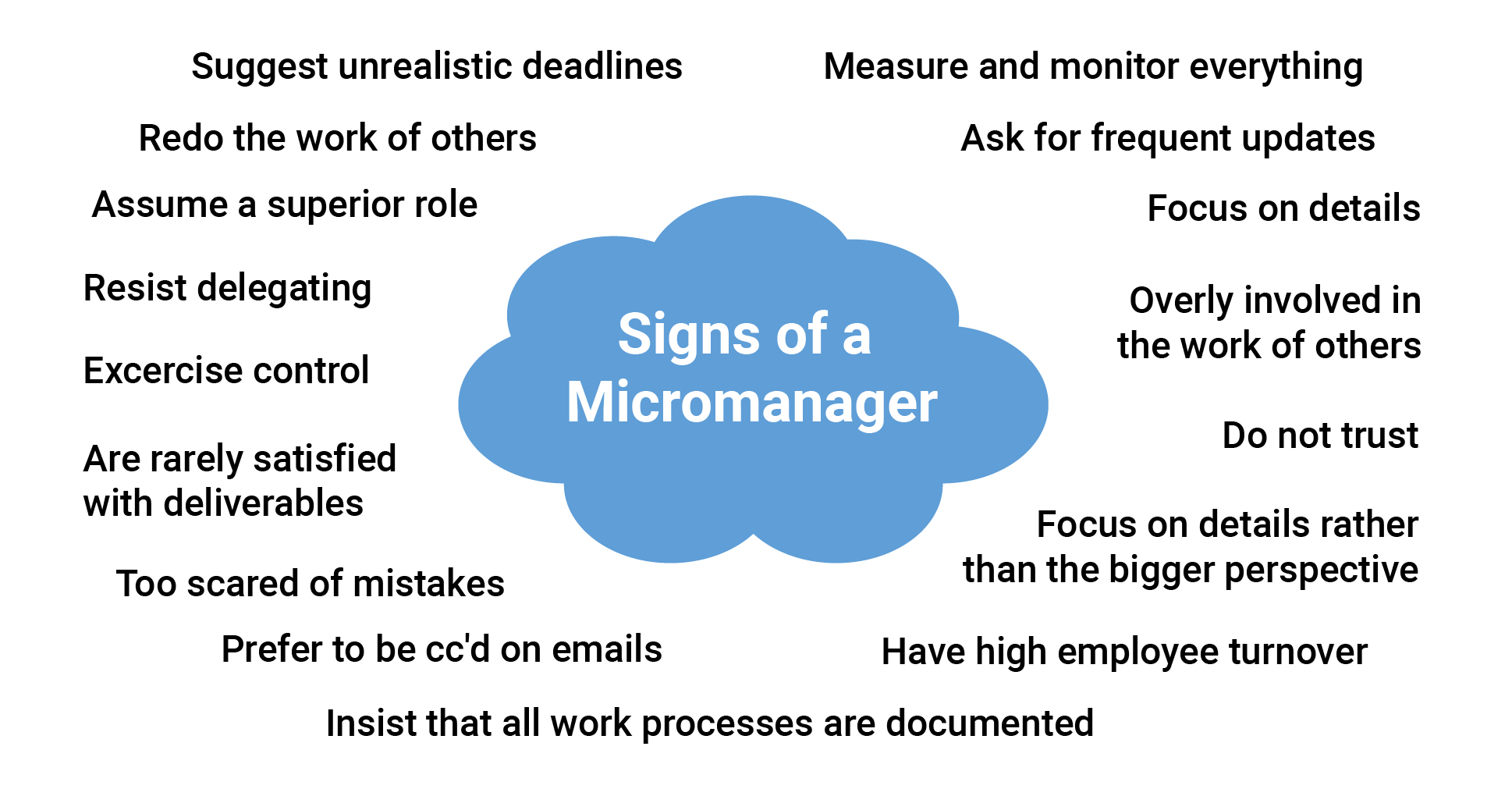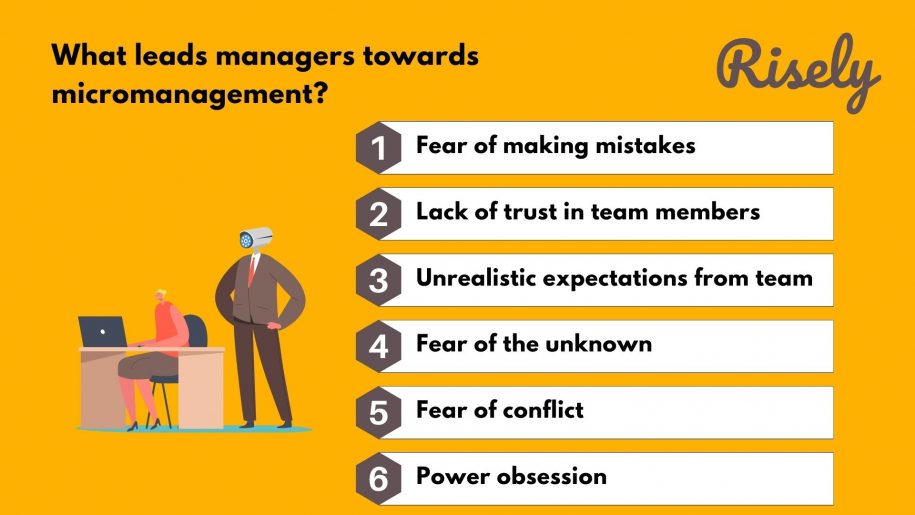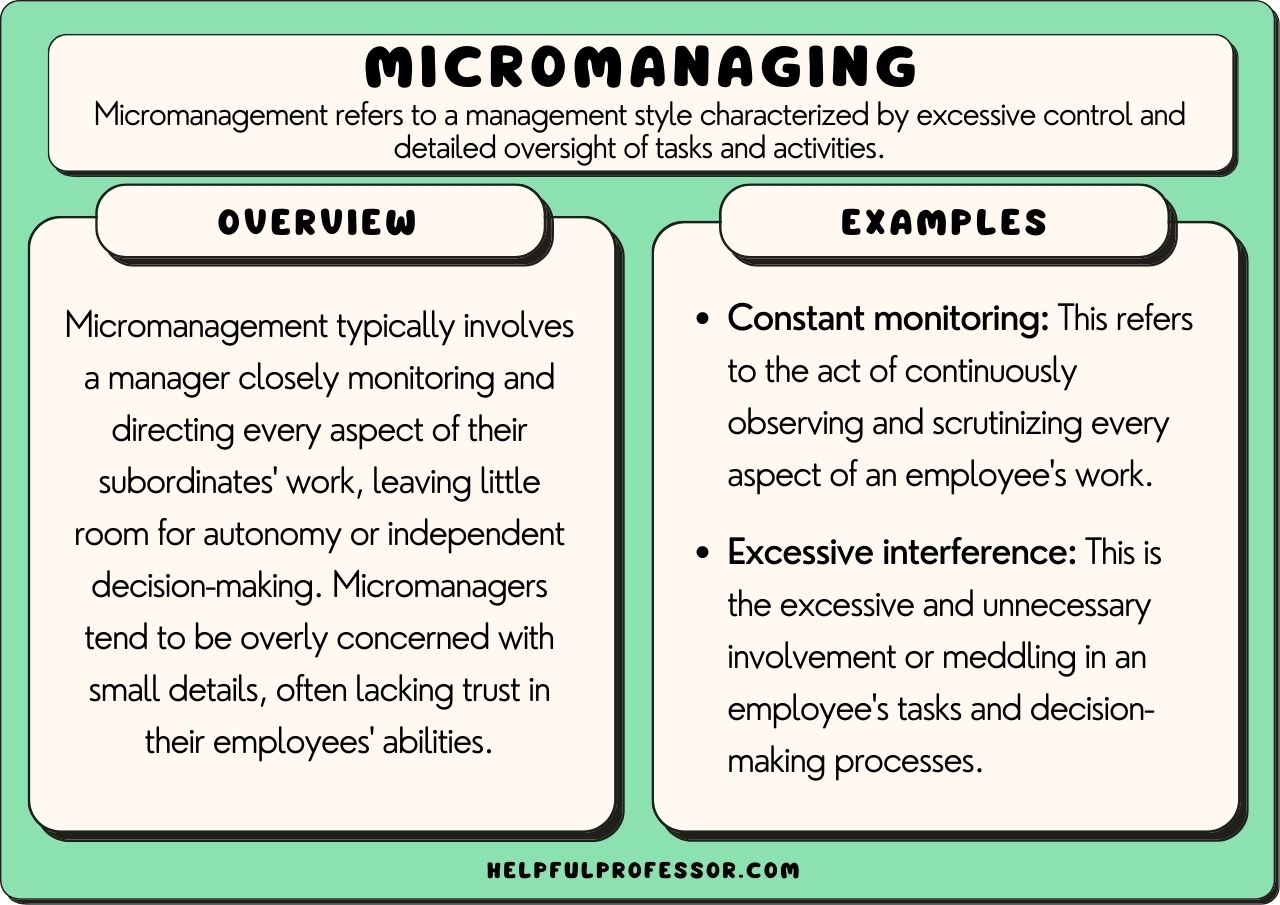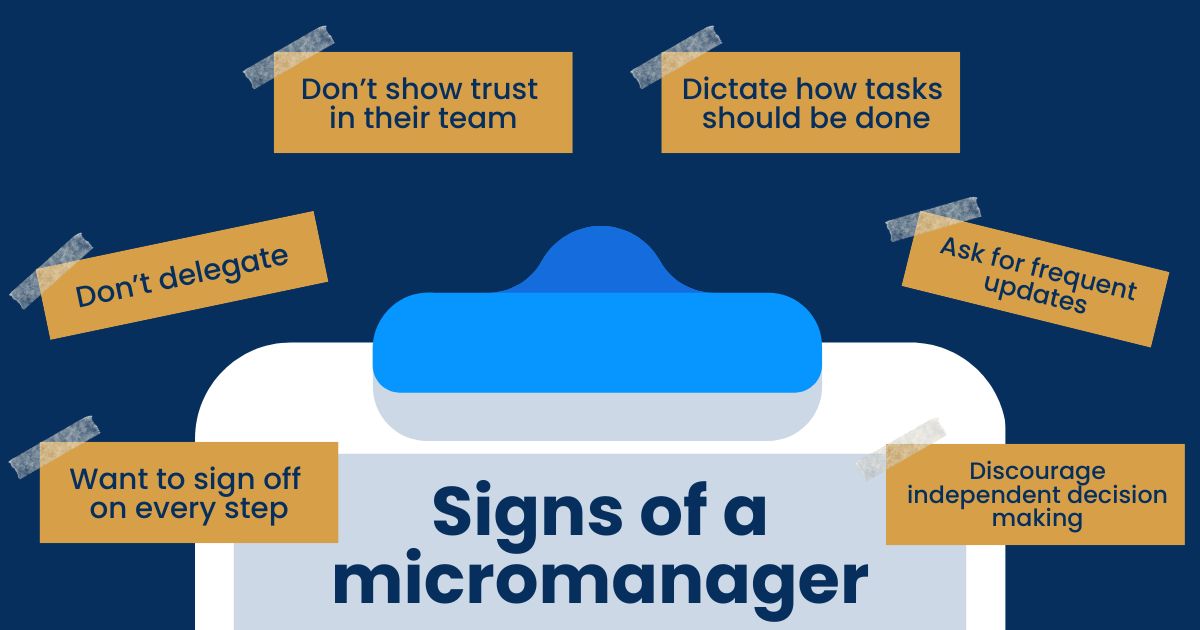How To Tell Your Manager They Are Micromanaging

The relentless scrutiny, the constant check-ins, the feeling of being stifled – these are the hallmarks of micromanagement, a leadership style that can cripple employee morale and productivity. While often unintentional, this behavior can lead to burnout, decreased innovation, and ultimately, a higher turnover rate. Learning to address this delicate issue is crucial for both employee well-being and organizational success.
Navigating the conversation with a micromanager requires careful planning and execution. It is important to understand the problem's gravity, and the necessary steps to effectively address and resolve such sensitive issues. This article will explore how to approach your manager, articulate your concerns, and collaboratively find solutions that foster a more trusting and productive work environment.
Understanding the Root Cause
Before initiating a conversation, it’s vital to understand why your manager might be micromanaging. Perhaps they are under pressure from upper management or feel insecure about their team’s performance. According to a 2023 study by Gallup, managers who lack confidence in their own abilities are more likely to engage in micromanaging behaviors.
Consider if recent project failures or deadlines have increased their anxiety. Identifying the underlying cause can help tailor your approach and offer constructive solutions. This step lays the groundwork for empathy, helping frame the conversation around collaborative problem-solving rather than confrontation.
Choosing the Right Time and Place
Timing is everything. Schedule a private meeting with your manager when they are less likely to be stressed or distracted. Avoid bringing up the issue during a particularly busy period or in front of other colleagues.
A one-on-one meeting allows for a more open and honest dialogue. This provides a safe space to express concerns without fear of judgment or public embarrassment. Creating this environment can foster a more understanding and receptive atmosphere for your manager.
Expressing Your Concerns Clearly and Respectfully
Begin the conversation by acknowledging your manager’s efforts and intentions. Use "I" statements to express how their behavior is affecting your work. For example, instead of saying "You are micromanaging me," try "I feel I can be more efficient if I have a little more autonomy on my assignments."
Focus on the impact, not the intent. This approach prevents the conversation from becoming accusatory. Data from Harvard Business Review suggests that framing feedback in terms of its impact on team performance is more likely to be well-received.
Providing Specific Examples
Avoid vague accusations. Provide concrete examples of situations where you felt micromanaged. For instance, describe a time when you were interrupted repeatedly during a task or when your manager insisted on approving every minor decision.
These specific examples give your manager a clear understanding of your experience and allow them to identify patterns of behavior. Detail enhances clarity and facilitates constructive feedback.
Proposing Solutions and Seeking Collaboration
Don’t just complain; offer solutions. Suggest alternative methods of communication and oversight. Perhaps regular progress updates or weekly check-ins would provide your manager with the necessary information without stifling your autonomy. According to a SHRM (Society for Human Resource Management) study, employees who actively participate in finding solutions are more satisfied with the outcome.
Emphasize your desire to work together to find a more effective approach. This collaborative stance demonstrates your commitment to the team's success. By proactively offering solutions, you demonstrate your willingness to improve productivity and team dynamics.
Documenting Everything
After the conversation, document the key points discussed and any agreed-upon changes. This documentation serves as a record of your efforts and can be helpful if the situation doesn’t improve. Keep this documentation private and professional.
Having a written record allows you to track progress and reference specific agreements. It also provides a basis for further discussion if needed. Careful record-keeping can be a safeguard if the micromanagement persists.
Seeking Support if Necessary
If the situation doesn’t improve after your conversation, consider seeking guidance from HR or a trusted mentor. They can offer advice on navigating the situation further and potentially mediate a discussion with your manager. Remember, you are not alone in this.
Having an impartial third party can provide valuable insights and support. They can help facilitate communication and identify underlying issues. Consulting with HR is often a prudent step when direct communication proves ineffective.
Looking Ahead: Fostering a Culture of Trust
Addressing micromanagement is not just about solving an individual problem; it’s about fostering a culture of trust and empowerment. Encourage open communication within the team and promote a feedback-rich environment. When employees feel valued and trusted, they are more likely to thrive.
Organizations that prioritize employee autonomy and trust tend to have higher levels of engagement and innovation. By addressing micromanagement head-on and promoting open communication, companies can cultivate a work environment where everyone can reach their full potential. This contributes to a more productive and engaged workforce, benefiting both the employees and the organization as a whole.


















